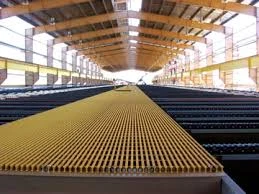
-
 Afrikaans
Afrikaans -
 Albanian
Albanian -
 Amharic
Amharic -
 Arabic
Arabic -
 Armenian
Armenian -
 Azerbaijani
Azerbaijani -
 Basque
Basque -
 Belarusian
Belarusian -
 Bengali
Bengali -
 Bosnian
Bosnian -
 Bulgarian
Bulgarian -
 Catalan
Catalan -
 Cebuano
Cebuano -
 China
China -
 China (Taiwan)
China (Taiwan) -
 Corsican
Corsican -
 Croatian
Croatian -
 Czech
Czech -
 Danish
Danish -
 Dutch
Dutch -
 English
English -
 Esperanto
Esperanto -
 Estonian
Estonian -
 Finnish
Finnish -
 French
French -
 Frisian
Frisian -
 Galician
Galician -
 Georgian
Georgian -
 German
German -
 Greek
Greek -
 Gujarati
Gujarati -
 Haitian Creole
Haitian Creole -
 hausa
hausa -
 hawaiian
hawaiian -
 Hebrew
Hebrew -
 Hindi
Hindi -
 Miao
Miao -
 Hungarian
Hungarian -
 Icelandic
Icelandic -
 igbo
igbo -
 Indonesian
Indonesian -
 irish
irish -
 Italian
Italian -
 Japanese
Japanese -
 Javanese
Javanese -
 Kannada
Kannada -
 kazakh
kazakh -
 Khmer
Khmer -
 Rwandese
Rwandese -
 Korean
Korean -
 Kurdish
Kurdish -
 Kyrgyz
Kyrgyz -
 Lao
Lao -
 Latin
Latin -
 Latvian
Latvian -
 Lithuanian
Lithuanian -
 Luxembourgish
Luxembourgish -
 Macedonian
Macedonian -
 Malgashi
Malgashi -
 Malay
Malay -
 Malayalam
Malayalam -
 Maltese
Maltese -
 Maori
Maori -
 Marathi
Marathi -
 Mongolian
Mongolian -
 Myanmar
Myanmar -
 Nepali
Nepali -
 Norwegian
Norwegian -
 Norwegian
Norwegian -
 Occitan
Occitan -
 Pashto
Pashto -
 Persian
Persian -
 Polish
Polish -
 Portuguese
Portuguese -
 Punjabi
Punjabi -
 Romanian
Romanian -
 Russian
Russian -
 Samoan
Samoan -
 Scottish Gaelic
Scottish Gaelic -
 Serbian
Serbian -
 Sesotho
Sesotho -
 Shona
Shona -
 Sindhi
Sindhi -
 Sinhala
Sinhala -
 Slovak
Slovak -
 Slovenian
Slovenian -
 Somali
Somali -
 Spanish
Spanish -
 Sundanese
Sundanese -
 Swahili
Swahili -
 Swedish
Swedish -
 Tagalog
Tagalog -
 Tajik
Tajik -
 Tamil
Tamil -
 Tatar
Tatar -
 Telugu
Telugu -
 Thai
Thai -
 Turkish
Turkish -
 Turkmen
Turkmen -
 Ukrainian
Ukrainian -
 Urdu
Urdu -
 Uighur
Uighur -
 Uzbek
Uzbek -
 Vietnamese
Vietnamese -
 Welsh
Welsh -
 Bantu
Bantu -
 Yiddish
Yiddish -
 Yoruba
Yoruba -
 Zulu
Zulu
Durable Solutions with Fiberglass Sewer Pipes for Modern Wastewater Management
The Benefits of Fiberglass Sewer Pipes
In the contemporary landscape of urban infrastructure, maintaining effective and sustainable waste management systems is essential. Among various plumbing materials, fiberglass sewer pipes have emerged as a significant alternative to traditional materials like PVC and clay. The unique properties and advantages of fiberglass make it a compelling choice for sewer applications, ensuring durability, longevity, and cost-effectiveness.
Composition and Strength
Fiberglass sewer pipes are made from reinforced plastic known as fiberglass reinforced plastic (FRP). This composite material consists of glass fibers embedded in a resin matrix, which grants the pipes exceptional strength-to-weight ratios. Unlike conventional sewer pipes, which may suffer from issues like corrosion, cracking, and breakage over time, fiberglass pipes are resistant to a wide range of chemicals, making them far more reliable in harsh conditions. Their inherent resistance to rust and decay allows them to stand the test of time when buried underground, minimizing the need for costly repairs and replacements.
Lightweight and Ease of Installation
One of the most significant advantages of fiberglass sewer pipes is their lightweight nature. Compared to traditional materials, fiberglass pipes are easier to handle and transport, leading to reduced labor costs during installation. The ease of handling not only speeds up the installation process but also decreases the overall manpower required, making it an attractive option for contractors and municipalities alike. In addition, fiberglass pipes can be molded into various shapes and sizes, enabling greater flexibility in design and application.
Resistance to Environmental Factors
fiberglass sewer pipe

Environmental conditions can take a toll on sewer systems, particularly in areas prone to earthquakes, floods, or severe weather conditions. Fiberglass sewer pipes exhibit remarkable flexibility, allowing them to withstand ground movements and pressure changes without fracturing. This resilience ensures the integrity of the sewer system, promoting long-term reliability in various geographical locations. Furthermore, fiberglass is impervious to many of the environmental stresses that cause traditional pipes to fail, such as soil erosions and shifting landscapes.
Longevity and Cost-Effectiveness
The longevity of fiberglass sewer pipes is another compelling reason for their adoption. With an expected service life that can exceed 50 years with proper installation, these pipes offer a significant return on investment for municipalities and private properties. While the initial cost may be higher than that of some traditional options, the reduced maintenance needs and lower likelihood of replacement over time ultimately lead to savings. Moreover, the decreased frequency of repairs contributes to less disruption in infrastructure, allowing communities to maintain a stable and reliable waste management system.
Environmental Benefits
In addition to their practical advantages, fiberglass sewer pipes also have environmental benefits. Their production and use contribute to lower carbon footprints compared to other piping materials. The durability and low maintenance requirements of fiberglass also mean reduced resource consumption over time, contributing to a more sustainable approach to urban infrastructure.
Conclusion
Fiberglass sewer pipes represent a modern solution to age-old challenges in waste management and sewage disposal. Their combination of strength, lightweight properties, environmental resilience, and long lifespan positions them as a superior choice for municipalities and contractors seeking reliable infrastructure solutions. As urban areas continue to expand and evolve, the adoption of innovative materials like fiberglass will be crucial in developing sustainable and efficient waste management systems. Embracing fiberglass sewer pipes is a step toward building stronger, more resilient communities that prioritize functionality and longevity in their infrastructure.









